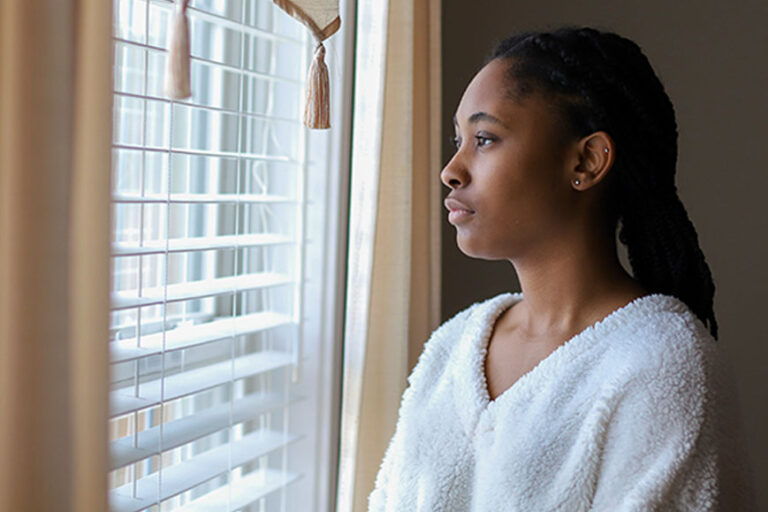This includes:
- Looking at or touching the private parts of a child’s body in a sexual way;
- Speaking to a child in a sexual way or using sexual language;
- Asking a child to look at or touch someone else’s private parts;
- Showing a child sexually explicit material (such as pornography).
Child sexual abuse is prevalent.
Unfortunately, many children experience sexual abuse. In 2020, AASAS released the findings of our Prevalence of Sexual Assault and Childhood Sexual Abuse in Alberta survey.
- Findings indicate that one in three Albertans (34%) experience sexual abuse before the age of 18.2
- Just under one in two girls (44%) and one in four boys (24%) in Alberta experience child sexual abuse.2
Experiencing child sexual abuse can have significant and long-lasting impacts.
Children are particularly vulnerable to abuse due to their physical and emotional dependence on adults, their isolation from community supports, and the persistence of the myth that children are sexually abused by strangers. Those who choose to sexually abuse children seldom use force. Instead, they often use deception, threats, and bribes.
Experiencing sexual abuse impacts a child emotionally, physically, and developmentally. Surviving the abuse often becomes the primary focus for a child. Other activities that support growth and development such as going to school, making friends, etc. become a secondary experience.
Children will respond to sexual abuse in a way that makes sense to them and will develop their own personal coping strategies. For this reason, no two children are impacted in the same way. The impacts of experiencing child sexual abuse can continue into adolescence and adulthood.

There are many reasons why a child might find it difficult to tell someone they are being sexually abused.
Children might:
- Have been threatened or told to keep it a secret.
- Feel confused, embarrassed, and ashamed.
- Fear they will not be believed.
- Be afraid that they will get in trouble.
- Not have the language to talk about what happened (i.e., may not know the names of their body parts).
- Not understand that sexual abuse is not ok.
- Be dependent on the youth or adult who is abusing them.
- Have been taught to be obedient to older youths and adults.
- Care about and want to protect the person committing the sexual abuse.
- Feel that they caused the abuse to happen or that they are in some way responsible.
As a result of these barriers, parents often do not know that their children are experiencing child sexual abuse. Some children never disclose their experiences of abuse to anyone.
Children have different ways of telling people they need help. They may indicate a reluctance to go home, a strong dislike for someone, they may engage in a variety of behaviours to attract adult attention, or make vague statements that are not chronological or seem scattered. When children do tell, they often minimize the abuse or disclose the ‘smallest’ thing first in order to gain a sense of what type of reaction they’ll receive. A neat, coherent, and timely disclosure of child sexual abuse should be regarded as the exception rather than the norm.
A positive and supportive first response to a disclosure of sexual violence can be the foundation of someone’s healing journey.
If you want to learn more about how to respond to disclosures of child sexual abuse, AASAS offers First Responder to Sexual Assault and Abuse Training.
Under the Child, Youth and Family Enhancement Act, any person who has reasonable or probable grounds to believe that a child has been or is at risk of being abused or neglected by a parent/guardian—or is aware of a parent/guardian who is unable or unwilling to protect a child from being abused—has an obligation to report it to Alberta Children’s Services.
1 Criminal Code Child, Youth and Family Enhancement Act (2021).
2Summary of Key Findings: Prevalence of Sexual Assault and Childhood Sexual Abuse in Alberta (2020). Association of Alberta Sexual Assault Services.
Support is available.
If you or someone you know has experienced sexual abuse, support is available through your local sexual assault centre or Alberta’s ONE LiNE for Sexual Violence.